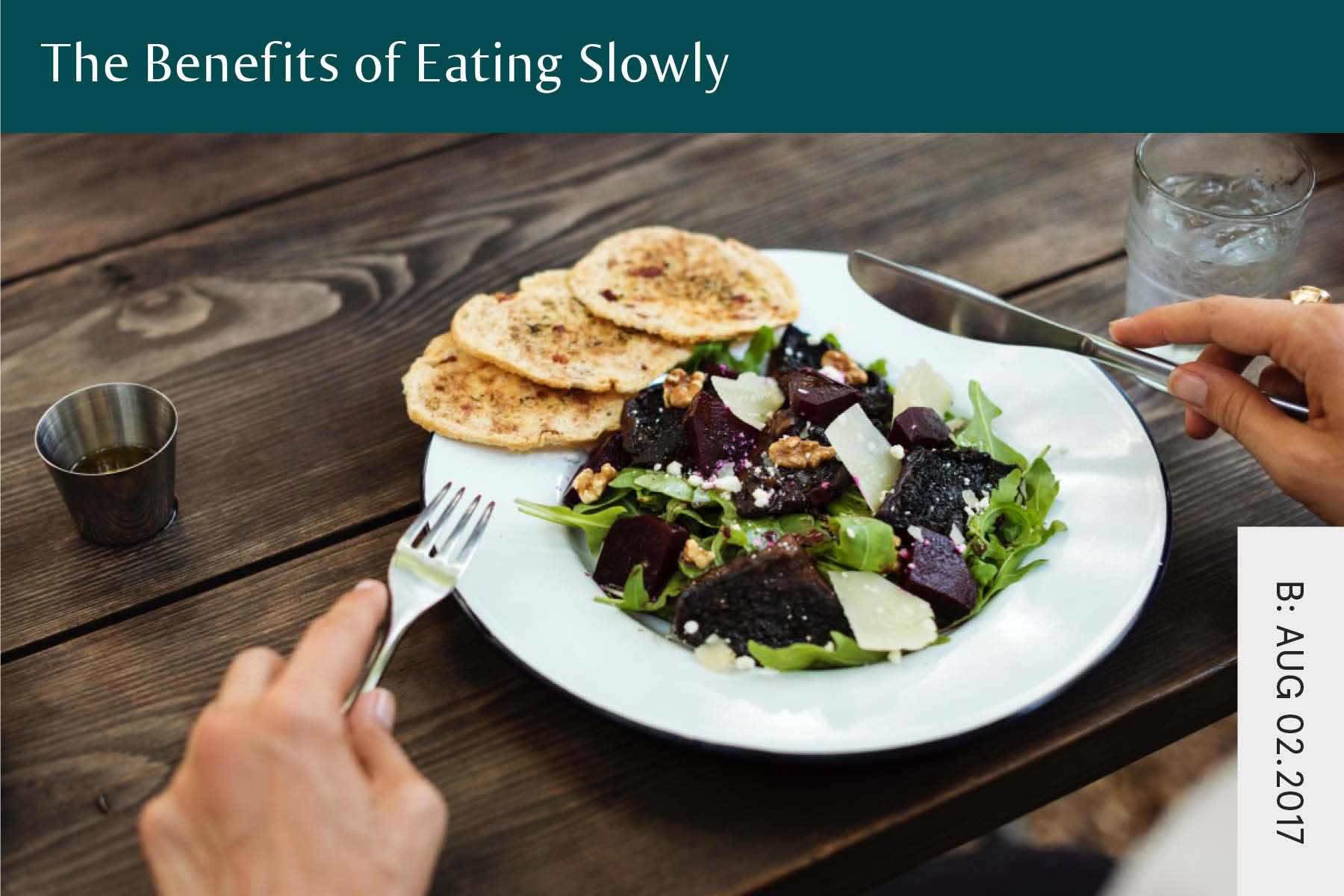

Sure, it can be sexy to talk about a flashy new supplement. Or to really dig into different metabolic pathways in the body.
But if the end goal is to improve health over the long term, following solid habits is what makes the biggest difference.
The simple act of sitting down and eating your meals in a relaxed and distraction-free manner is beneficial for a number of reasons.
You become aware of your hunger and fullness cues. It becomes much more difficult to overeat when you are present and in the moment.
Fast food has been engineered to hit our pleasure centres and this leads people to eat more quickly. But when you slow down and consciously eat this type of food, often the opposite occurs. It’s less appealing and often disappointing.
The inverse is true with other foods. If you eat it in a rush without paying attention, it’s much less pleasurable. There’s no stand out flavours that catch your attention when you’re checking emails or distracted by the TV.
But when you eat these foods when you’re present, things change markedly. You notice the flavours more acutely and this increases your enjoyment of the meal.
If you’ve never eaten much of this type of food growing up, it’s much subtler than the over-the-top sensation of eating fast food. But with time, your taste buds can actually change and you’ll begin to enjoy these foods more.
And even if your taste buds don’t change, eating slowly is still beneficial. Irrespective of the food choice, eating in a calm, relaxed manner is better for health.
When you eat slowly and mindfully, digestion works better. You’re less likely to get heartburn or bloating and you’re less likely to feel sluggish after the meal.
Instead of relying on external cues, you’ll begin to tune in to the signals your body is giving you. No need to calorie count or to weigh and measure out portions, instead you can let your body do this naturally for you.
By trying to implement eating slowly, you may notice how much of a rush you’re always in. You realise that food is often an afterthought that you try and wedge in between back-to-back meetings or an otherwise hectic schedule.
Or maybe you realise that it’s hard to be alone with your thoughts while eating slowly. Or that so much of your eating is about emotions and coping rather than about nourishment.
If someone is suffering from issues around food that involve restriction and under eating, slowing down with eating might not be where I’d start (and possibly the opposite suggestion would be helpful).
But for many clients, it’s a great solution.
So if eating slowly feels appropriate for you, then give it a try and see what you notice.
I’m a leading expert and advocate for full recovery. I’ve been working with clients for over 15 years and understand what needs to happen to recover.
I truly believe that you can reach a place where the eating disorder is a thing of the past and I want to help you get there. If you want to fully recover and drastically increase the quality of your life, I’d love to help.
Want to get a FREE online course created specifically for those wanting full recovery? Discover the first 5 steps to take in your eating disorder recovery. This course shows you how to take action and the exact step-by-step process. To get instant access, click the button below.
Discover the first five steps to take in your eating disorder recovery.
Get started the right way and be on the path to full recovery and the freedom it will bring YOU.
Unlike other approaches focusing on just one aspect of recovery, this course shares a framework that demonstrates what full recovery is really about and gives you the tools to get there.
Get Instant Access!
thanks so much for this chris! this is somthing that has helped me so much in the past and i really am glad you posted this as a reminder for me wich i needed very much. i also love when you talk about intuitive eating, i have been a chronic “calorie counter” for years and always ate enough to keep my weight up but 80% of the time i never felt satisfied once i “reached my calorie limit” latley i have grabbed a couple more fruit or ate a bowl of cereal and just alowed myself that extra nourishment and listened to my body and it has been great, not only do i finaly get that plesant “full” sensation but i go about my day better as well, my mood iis better and i can even see advancments when i do my swimming and weight lifting. slow, mindful eating and having the courage to intuitively eat has been the best tools for me.
[…] as what you eat”. Appreciating food can help us slow down and take time to eat. This slowing down helps our bodies digest the food more thoroughly while decreasing chances of digestive […]